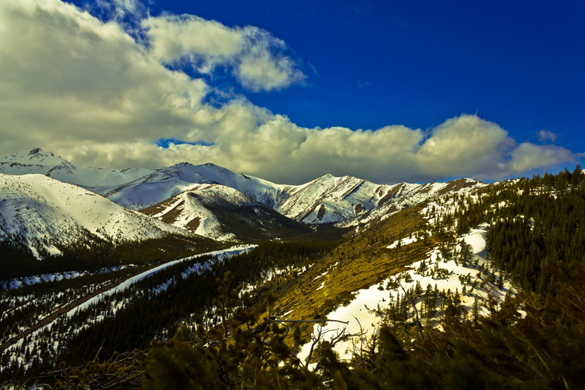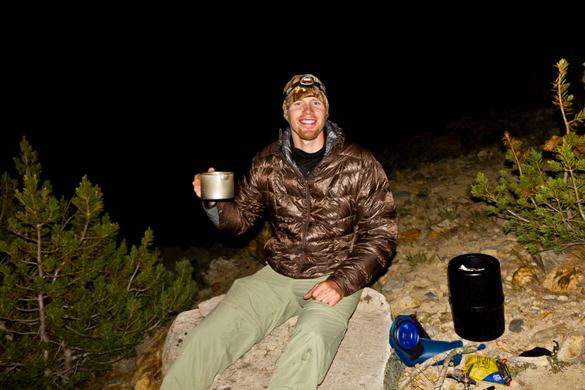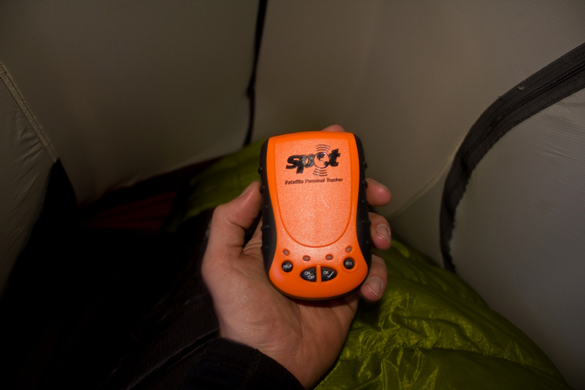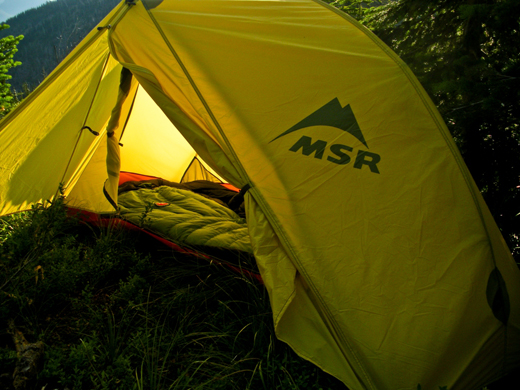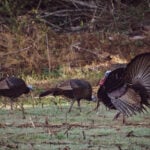LAST UPDATED: May 1st, 2015
We all hunt the backcountry for various reasons…the scenery, the solitude, less pressured game, and the ability to say you were successful in such a rugged area. Whatever the reason may be, be mindful that the same terrain you love to hunt can also turn on you in an instant. Make no ifs, ands, or buts about it…hunting the backcountry is tough, and weather conditions can go from calm to extreme in a hurry; which could easily put you in a life threatening situation. Safety in the backcountry is extremely important, and it all starts before you head out on a hunt by preparing properly for one thing…… the unexpected.
The backcountry may be beautiful, but the moment you turn your back on it or let your guard down…..could be your last. Prepare accordingly.
However, with the advancement in today’s technology, being safe is becoming even easier. Long gone are the days when a compass and map are your main tools, as equipment options have changed drastically. Take the necessary steps to research and test each piece of gear you bring on the hunt, and you and your family will have peace of mind knowing that you are equipped to survive whatever Mother Nature throws at you. We owe it to ourselves and our families to hunt hard and return from the trip safely with lots of stories and photos to share. Besides, for the main backcountry equipment like a tent, sleeping bag, sleeping pad, stove, and food…survival/safety gear can come in many different forms. Let’s take a closer look at what is available.
The Author (pictured here) has spent many hours in the backcountry and has learned firsthand how to stay safe and prepared.
Technologically Advanced Gear
Today, whether we like it or not, we are connected to some sort of battery powered device that can send and receive messages. In this technologically advanced world, sometimes it is nice to get away and leave our smartphones and emails behind. Throughout my years exploring the backcountry, I have seen firsthand how these devices can save a person’s life. During that situation, we were lucky to have had a phone with us that could make a call from the mountainside. You never know when you might have service and things like a simple text message saying that you’re safe can mean a world of difference to a family member back home. With increased advancements in technology, we can now pair a smartphone with a handheld satellite device to send custom one way messages to people, even when we don’t have cell service. This is a simple way to let loved ones know that you are safe. In the case of an emergency you can send for help and send an emergency SOS message with GPS coordinates to Search and Rescue. Another use is for extreme backcountry hunts where you can send a message to let a pilot or packer know you tagged out, so they can start heading your way. A satellite phone is also a great option that can replace both of these items. The only downfall would be the cost to run one.
The SPOT Satellite GPS Messenger provides a vital line of communication with friends and family when you want it, and emergency assistance when you need it.
For ease of backcountry travel a handheld GPS unit is worth its weight in trophy caliber game! You can mark waypoints of interest when you find decent hunting areas, mark trails and even tent locations. Without a doubt it is an essential tool on all of my hunts. I’ve used one numerous times to find my way back to a hunting location in the dark and even have used it to mark routes up the mountain that I can return to year after year. When it comes to backcountry safety, it is easy to see how beneficial a GPS would be if you were to get disorientated or even lost. The downside to relying on technology is once they run out of power, they become dead weight in your backpack. I try to alleviate this issue by using new batteries on each trip, switching to lithium ion batteries, and by trying to use things that take the same battery size so I can swap batteries if needed in a pinch. Another option would be to utilize a small portable solar panel that can charge your devices.
Brunton makes a variety of products that can recharge your electronic device. They even make chargers that run off of solar power and roll up into nearly nothing.
First Aid Gear
We all know that accidents come in all shapes and sizes, so it is a good idea to be adequately prepared for injuries. Most first aid kits will have the necessary items in them, but it is still a good idea to modify them to suit your needs. You should always carry these items with you in the backcountry, no matter the circumstances.
My personal kit consists of the following items:
Sutures
Small roll of medical/athletic tape
Small section of duct tape
Moleskin – two 4×4″ pieces
Large band aids – 4
Small band aids – 4
3″x3″ gauze pads – 2
2″x2″ gauze pads – 2
Non-adherent dressings – 2
Triple antibiotic ointment packets – 2
Alcohol pads – 4
Safety pins – 3
Along with my first aid kit, I have my essential kit for basic survival. This includes a lighter, waterproof matches, Vaseline soaked cotton balls, at least 25ft of parachute cord, survival blanket, compass, protein bar, water purification drops, and handwarmers. Be sure to note items that have multiple purposes, so you don’t double up on anything which will only add weight to your backpack. Also, I always carry my lightweight de-boning knife, multi-tool, and headlamp in my pack.
Clothing Items
What you wear while hunting can have one of the largest impacts on your survival. The biggest thing to remember is cotton kills!! Cotton has no place in the backcountry. When I am hunting away from my camp I always carry my rain jacket/plants, plus an insulation jacket and a warm hat and gloves. You never know if you will have to spend a night on the mountain without your main shelter. Being prepared for this is extremely important and may even save your life.
Not only are your choices in clothing important, but also what you decide to bring along for shelter can also have a bearing on whether or not you survive if the conditions go from bad to worse.
Other Items
If you’re hunting in bear country, it would be well advised to carry a can of bear spray. Bear encounters can happen at any time. I personally carry bear spray and a sidearm just to be extra cautious in grizzly bear country. Being smart in bear country starts by knowing how to properly take care of your food around camp and how to store that food at night.
Be sure to go through your first aid kit before the start of each season and replenish items that you may have used the previous season. This safety gear list can even be modified to suit the needs of a front country hunter. You may never need some of these items, but it’s better to be prepared when going into a hunt since you never know what conditions you could encounter.

